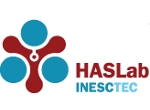Lecture notes in computer science
- Citation:
- Counsell S, Núnez M. 2014. Lecture notes in computer science. Software Engineering and Formal Methods. :432.
Abstract:
This book constitutes the revised selected papers of the collocated workshops of the 11th International Conference on Software Engineering and Formal Methods, SEFM 2013, held in Madrid, Spain, in September 2013. The conference hosted 5 workshops: The Second International Workshop on Behavioural Types (BEAT2). The aim was to pursue research topics in the use of behavioural type theory as the basis for new foundations, programming languages and software development methods for communication-intensive distributed systems. The Third Workshop on Formal Methods in the Development of Software (WS-FMDS). The aim was to bring together scientists and practitioners active in the area of formal methods and interested in exchanging their experiences in the industrial usage of these methods. The Workshop on a Formal Methods Body of Knowledge for Railway Control and Safety Systems (FM-RAIL-BOK). In many engineering-based application areas such as in the railway domain, formal methods have reached a level of maturity that already enables the compilation of a so-called body of knowledge. The Second International Symposium on Modelling and Knowledge Management for Sustainable Development (MoKMaSD). The aim was to bring together researchers and practitioner from academia, industry, government and non-government organisations to present research results and exchange experience, ideas and solutions for modelling and analysing complex systems. In particular in areas including economy, governance, health, biology, ecology, climate and poverty reduction. The 7th International Workshop on Foundations and Techniques for Open Source Software Certification (Open Cert). The aim was to bring together researchers from Academia and Industry interested in the quality assessment of OSS projects, as well as the metrics, procedures and tools used in OSS communities and for the measurement and assessment of OSS quality.
Notes:
n/a

